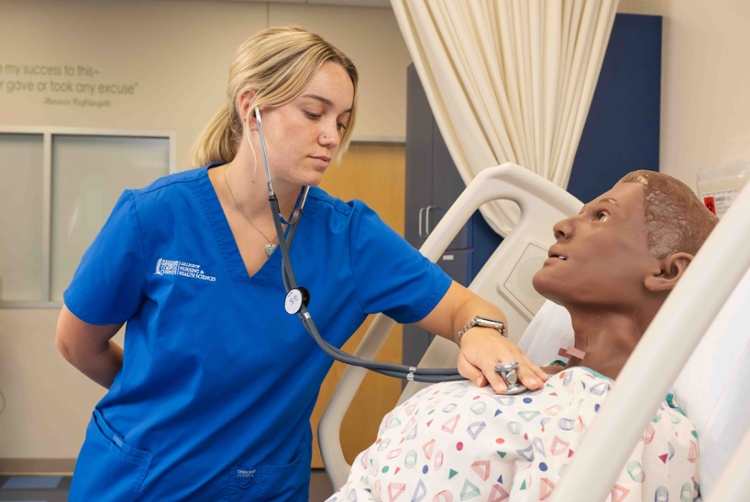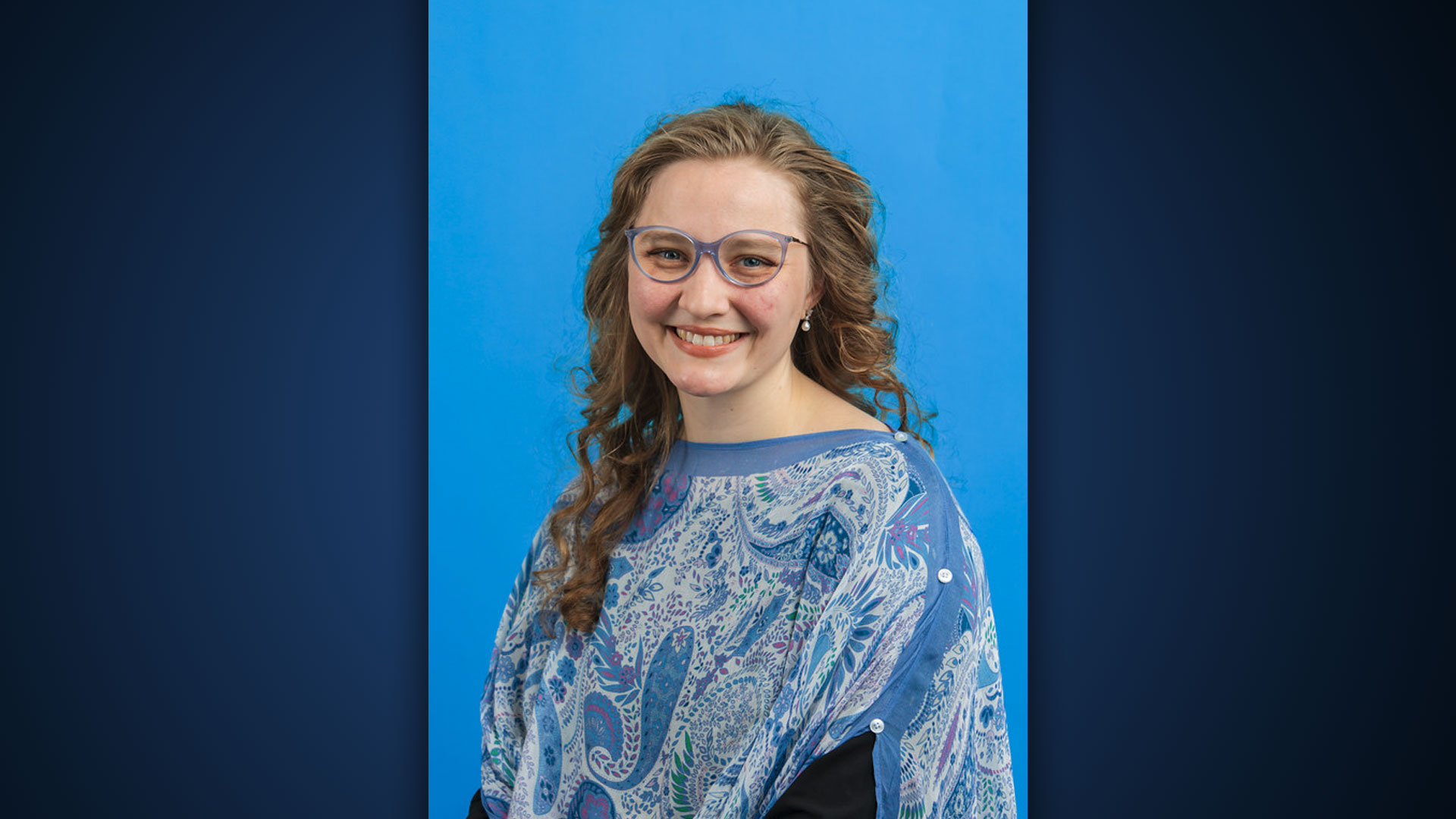New Apartment Simulation Lab Prepares Islander Nursing Students for Primary Care in Patient Homes
CORPUS CHRISTI, Texas – The College of Nursing and Health Sciences at Texas A&M University-Corpus Christi has created a new simulated experience for Islander nursing students through the implementation of an apartment simulation lab. The lab, designed to replicate the everyday home of patients, features a kitchen setting, a dining area, a living room area, and a mock bathroom.
Amid the COVID-19 pandemic, faculty and staff designed this new and innovative way to provide students with opportunities to participate in clinical assessments while remaining safe and socially distanced. The lab was the brainchild of Lab Supervisor Dr. Julie Fomenko, with assistance from Simulation Lab Coordinator Brayton Amidon, Assistant Clinical Professor Leigh Shaver, and Nursing Simulation Lab Supervisor Lisa Snell.
“No matter where our nursing students work, they must understand that their clients come from a home and family in the community and will return there,” Shaver said. “This learning experience really brings that home.”
As the health care system has shifted focus from disease treatment to disease prevention, students have utilized the space to model preventative care in the homes of patients.
“The home health simulation pushes our nursing students to consider family, community, and environment as critical elements of the individual’s health,” Shaver said. “The hospital is an artificial environment where the patient has very limited control. In the home, the client calls the shots. Our nurses must meet them where they are to impact their health the most and because of the new lab, our students will include patient empowerment in their approach to care.”
When first utilizing the simulation, nursing students who are primarily enrolled in Shaver’s Community Health Nursing course, are tasked with completing a thorough assessment of the client’s physical self, history, medications, family, environment, and psychosocial needs. Guided by model documents from an actual home health agency, students then identify problems, provide teaching, and follow up with additional client education and referrals.
“Our students are learning to be nurses that really take the time to listen to their clients, learn along with their clients, and go to those places where clients need us most,” Shaver said.
Lisa Snell, nursing simulation lab supervisor, says that the simulation lab is a welcome alternative to in-person assessments.
“During this time dealing with the COVID-19 pandemic, many of our clinical partners were not accepting students, so through this simulation, they not only get a great learning opportunity but are also able to meet their course objectives,” Snell said.
Islander nursing student, Molly Blackburn ’21 says her experience in the lab played a key role in developing her skills in primary care.
“My experience in the apartment simulation lab was amazing. Not only was I given the opportunity to further my nursing skills, I also was able to enhance my communication and patient teaching skills,” Blackburn said. “I was able to grow as a nurse by being able to pick up on small verbal and nonverbal cues about how the patient was coping. The best part about the simulation is that it tested every aspect of what we have been taught throughout all of nursing school.”
The apartment simulation lab was funded by a federal grant from the Health Resources and Services Administration for Registered Nurses in a Primary Care Training Program.


























































